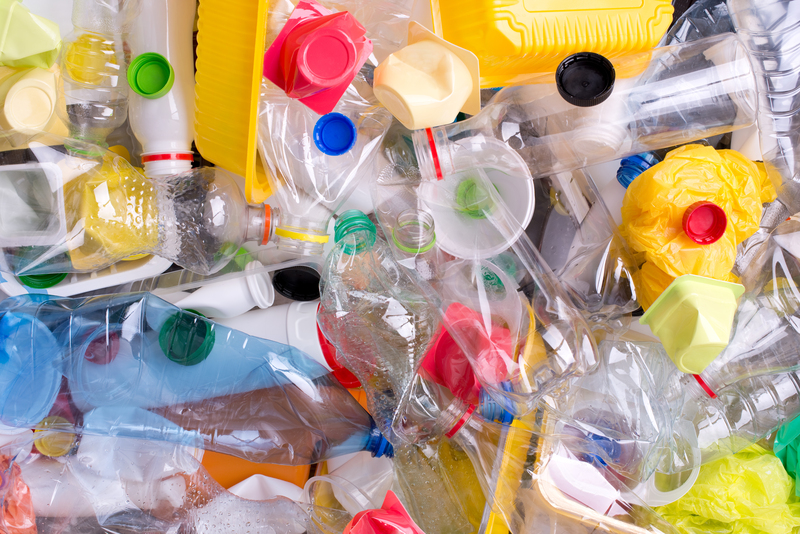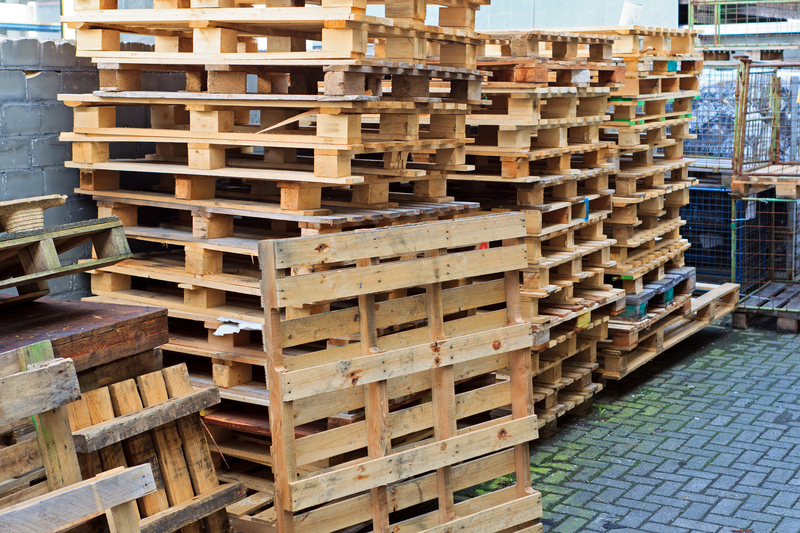How to Effectively Minimize Household Debris
Household debris is a common byproduct of everyday living, ranging from food scraps and packaging to broken furniture and outdated electronics. While some waste is inevitable, it's possible to greatly reduce the volume of household debris generated in your home. Mastering debris minimization is not only beneficial for the environment--it also helps you save money, keeps your home organized, and fosters a healthier living space.
In this comprehensive guide, we'll give you actionable strategies for minimizing household debris effectively. Whether you're looking to tackle one-time decluttering projects or adopt sustainable daily habits, you'll find practical tips and important information here.
Why Should You Reduce Household Debris?
Many households struggle with the constant buildup of debris, which consists of anything we throw away or no longer need. Reducing household waste has several benefits:
- Environmental Impact: Lower debris means less waste in landfills and reduced pollution.
- Cost Savings: You spend less on products, disposal, and cleaning supplies.
- Improved Health: A decluttered space reduces allergens and promotes mental clarity.
- Enhanced Living Space: Cleaner, more organized homes are more enjoyable and functional.
Taking steps to minimize household debris is a smart move for your family, your wallet, and the planet.

Understanding the Different Types of Household Debris
To successfully minimize unwanted household items, it's important to know what kinds of debris usually accumulate. Here are the major categories:
- Organic Waste: Food scraps, yard trimmings, and soiled paper products.
- Recyclables: Glass, plastic, cardboard, and metal that can be processed and reused.
- Hazardous Waste: Batteries, electronics, cleaning agents, paint, and automotive fluids.
- Bulky Items: Old furniture, mattresses, broken appliances, and large cardboard boxes.
- General Trash: Items that cannot be recycled or composted.
Practical Strategies to Effectively Minimize Household Debris
Minimizing household debris is about making conscious choices throughout your daily routine. Adopt these simple yet powerful strategies to keep your home debris-free and efficient.
1. Adopt a Minimalist Mindset
Start with a shift in perspective: The less you bring into your home, the less you'll have to throw out later.
- Buy Only What You Need: Before making a purchase, ask if it's truly necessary.
- Declutter Regularly: Periodic cleanups prevent excess accumulation.
- Choose Multi-use Items: Opt for objects that serve several purposes in your household.
2. Rethink Consumption and Purchasing Habits
Many products contribute to household debris buildup. By becoming a more thoughtful consumer, you can minimize packaging waste and product obsolescence.
- Buy in Bulk: Reduce the amount of single-use packaging entering your home.
- Select Durable Goods: Invest in high-quality items that last longer and resist wear.
- Avoid Impulse Buys: Take time to assess whether a new item serves a practical, lasting purpose.
3. Embrace Reuse and Repurposing
One of the most effective ways to minimize residential debris is to give items a new life instead of discarding them.
- Repurpose Containers: Use glass jars for storage or organization.
- Upcycle Old Clothes: Turn worn T-shirts into cleaning rags or DIY crafts.
- Fix Instead of Replace: Repair broken furniture, small appliances, or electronics when possible.
4. Establish a Robust Recycling System
Properly sorting your debris ensures more materials are diverted from landfills. To effectively reduce household waste through recycling:
- Know What's Recyclable: Refer to your municipality's guidelines for recycling.
- Label Bins Clearly: Make it easy for the whole family to separate recyclables from trash.
- Rinse Items: Clean food residues from containers before recycling.
- Participate in Community Programs: Take advantage of electronics, hazardous, and bulky waste collections.
5. Compost Organic Waste
A significant portion of household debris is food and yard waste. Composting these materials can create nutrient-rich soil for gardens and houseplants.
- Set Up a Compost Bin: Place compostable items like fruit peels, vegetable scraps, coffee grounds, and eggshells in a backyard bin or countertop composter.
- Avoid Composting: Meat, dairy, and oily foods, which can attract pests.
- Mulch Yard Debris: Chop leaves and grass clippings for mulch instead of bagging and tossing them.
6. Reduce Use of Single-Use Items
Single-use plastics and disposables are among the largest contributors to household debris. Limit their use by:
- Using Reusable Bags: For groceries and shopping trips.
- Switching to Refillable Water Bottles and Mugs: Avoid buying bottled drinks and disposable cups.
- Implementing Cloth Napkins and Towels: Replace paper products with washable versions.
- Choosing Reusable Food Containers: Store leftovers in glass or durable plastic containers.
7. Handle Hazardous and Bulky Debris Responsibly
Improper disposal of hazardous and bulky items can cause environmental hazards and legal issues.
- Use Local Collection Events: Many municipalities run annual hazardous waste drop-offs.
- Recycle Electronics Responsibly: Take old devices to certified e-waste recyclers.
- Donate If Possible: Furniture, tools, and appliances in good condition can be donated rather than trashed.
- Hire Professional Services: For large cleanouts, consider reputable junk removal companies that prioritize recycling and donation.
8. Educate and Involve the Household
Effective minimization of household debris is easier when everyone is on board.
- Teach Best Practices: Involve children in recycling and composting.
- Create Reminders: Place signs near bins or schedule regular cleaning days.
- Track Progress: Set goals for reducing waste output and celebrate achievements.
9. Make Use of Digital Solutions
Technology can play a major role in minimizing household debris.
- Go Paperless: Switch to digital bills, statements, and subscriptions.
- Digitize Records: Scan important documents to avoid paper clutter.
- Use Shopping Apps: Streamline grocery lists to reduce impulse buys and packaging waste.
Room-by-Room Guide to Minimizing Household Debris
Each area of your home creates different types of debris. Here's how to address waste minimization, room by room:
Kitchen
- Avoid Overbuying Groceries: Plan meals and shop with a list to keep food waste minimal.
- Store Food Properly: Use airtight containers to extend the shelf life of perishables.
- Recycle and Compost: Set up convenient bins for sorting recyclables and organics.
Bathroom
- Choose Eco-Friendly Products: Opt for bar soap over bottled, refillable shampoo, and biodegradable wipes.
- Avoid Single-Use Items: Replace disposable razors and cotton pads with reusable alternatives.
- Recycle Bottles and Packaging: Rinse and sort appropriately.
Living Areas
- Declutter Routinely: Donate or sell items that are no longer needed.
- Repair Furniture: Patch up instead of chucking out couches or tables.
- Limit Decorative Clutter: Choose timeless pieces over trendy, throwaway decor.
Garage/Storage
- Organize Tools and Gear: Store with shelving and bins to track what you own.
- Donate or Sell Unused Equipment: Sports equipment, tools, and bikes can find new homes.
- Dispose of Hazardous Waste Safely: Take old paint, chemicals, and batteries to the proper facilities.
Long-Term Habits to Sustain Debris Reduction
Turning debris reduction into a lifestyle is key for lasting impact. Maintain these habits:
- Set Ongoing Goals: Review your household's waste habits quarterly and adjust.
- Invest in Quality: Durable goods may cost more upfront, but they create less waste over time.
- Participate in Community Initiatives: Support local repair cafes, swap events, and clean-up drives.
- Stay Informed: Keep learning about new ways to minimize residential debris.

FAQs About Minimizing Household Debris
-
What's the easiest way to start reducing household debris?
Start by tracking what you throw away for a week. Identify the most common items and target those first--often it's food, packaging, and paper waste. -
Can I really make a difference by minimizing waste?
Absolutely. Every family that makes changes contributes to a larger impact--less waste in the landfill, fewer resources used, and a cleaner community. -
What about items I can't recycle or compost?
Do your best to find alternative uses or donate before disposing. For non-recyclable or bulk waste, use municipal pickup services or hire responsible junk removal companies. -
Is composting messy or time-consuming?
Not necessarily. Modern compost bins are compact, odor-resistant, and easy to manage with simple guidelines.
Conclusion: Take Charge of Your Household Debris Today
Minimizing household debris isn't about perfection--it's about steady progress and making informed choices every day. Start small by implementing a few key changes and build on your success.
Remember, effective debris reduction benefits everyone: It saves money, safeguards the environment, and creates a happier, healthier home. Commit to these strategies, involve your household, and be an advocate in your community. You'll be amazed at how much of a difference you can make!
Looking for more tips on sustainable living and waste reduction? Explore our blog for actionable guides and eco-friendly product reviews.